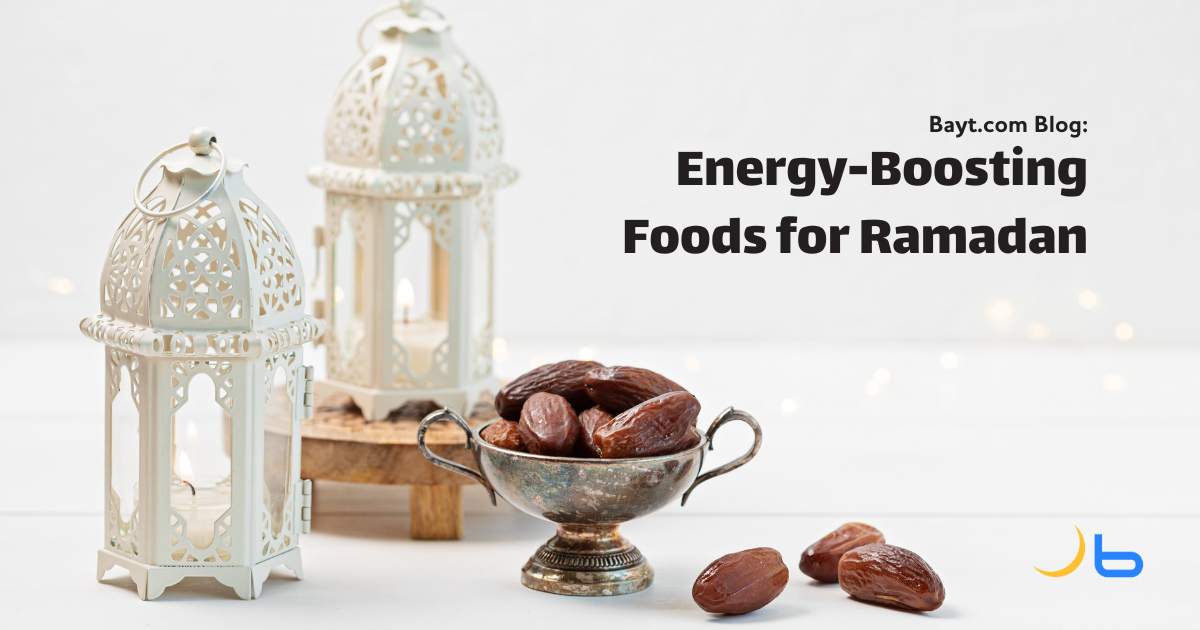
Ramadan, the holy month of spirituality and fasting observed by Muslims worldwide, poses unique challenges, especially in maintaining energy levels during working hours. Despite abstaining from food and drink from dawn till dusk, it's possible to stay physically energized throughout the workday with mindful nutrition and hydration strategies. In this article, we'll explore effective tips to sustain energy levels at work during Ramadan, focusing on essential food and hydration practices.
Suhoor: The pre-dawn meal
Suhoor, the pre-dawn meal, is crucial for providing sustained energy throughout the day. Opt for complex carbohydrates such as whole grains, oats, and brown rice, which release energy slowly, keeping you fuller for longer. Incorporate protein-rich foods like eggs, yogurt, and lean meats to promote muscle repair and prevent hunger pangs. Hydrate well with water or hydrating beverages to replenish fluids lost during the fast.
Balanced iftar meals
Breaking the fast with a balanced Iftar meal is essential for replenishing energy stores and promoting overall well-being. Start with hydrating foods such as water-rich fruits like watermelon and cucumber to rehydrate the body. Include complex carbohydrates like whole wheat bread, rice, or pasta to replenish glycogen stores and provide sustained energy. Incorporate lean protein sources such as grilled chicken, fish, or legumes to promote muscle repair and satiety. Don't forget to include plenty of vegetables for fiber, vitamins, and minerals.
Snack smartly
During non-fasting hours, incorporate healthy snacks to maintain energy levels and prevent overeating during Iftar. Opt for nutrient-dense snacks such as nuts, seeds, and dried fruits, which provide a combination of healthy fats, protein, and fiber to keep you satisfied. Avoid sugary snacks and refined carbohydrates, which can lead to energy crashes and cravings later on.
Mindful hydration
Hydration is key to maintaining energy levels and overall well-being during Ramadan. Aim to drink plenty of water between Iftar and Suhoor to stay hydrated. Avoid caffeinated and sugary beverages, as they can lead to dehydration and energy fluctuations. Herbal teas, infused water, and coconut water are excellent hydrating options that also provide electrolytes and essential nutrients.
Optimize suhoor choices
Suhoor, the pre-dawn meal, should focus on slow-releasing carbohydrates, lean proteins, and hydrating foods to sustain energy levels throughout the day. Choose foods with a low glycemic index to provide sustained energy, such as oatmeal, whole wheat toast, and Greek yogurt. Include sources of healthy fats like avocado or nuts to promote satiety and slow down digestion. Hydrate well with water or hydrating beverages to prepare the body for the fast ahead.
Portion control
Practice portion control during Iftar and Suhoor to prevent overeating and promote comfortable digestion. Opt for smaller, balanced meals that include a variety of nutrient-dense foods. Avoid overloading your plate with heavy, fried foods, as they can lead to sluggishness and discomfort. Listen to your body's hunger and fullness cues, and stop eating when you feel satisfied.
Schedule breaks and rest
Schedule short breaks throughout the workday to rest and recharge, especially during Ramadan. Use these breaks to perform light stretching exercises, deep breathing, or meditation to rejuvenate both the body and mind. Avoid excessive physical exertion or strenuous activities during fasting hours to conserve energy and prevent fatigue.
Keep an eye on our blog for more career growth tips during the holy month of Ramadan.